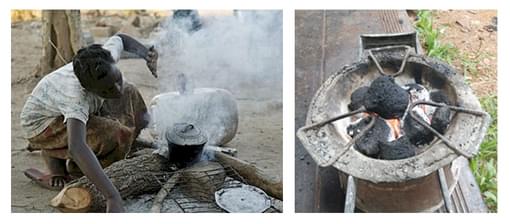MotoCharcoal briquettes: An alternative source of energy in Africa
Uncategorised

Photo Credit: Dr Mercy Manyuchi
As you move along the length and breadth of Zimbabwe at sunset, you are greeted by a hive of activity in townships and rural households, as the women get ready to prepare the evening meal; in most cases, the only proper meal of the day. Women and children will be seen carrying an assortment of energy sources for cooking such as firewood, dried cow dung, crop residues, kerosene or Liquid Petroleum Gas (LPG).
In sub-Saharan Africa, close to 50% of the population lives off-grid, therefore alternative sources of energy are essential. The current options available to most people are either expensive, or their use results in environmental concerns such as increased deforestation, or indoor air pollution. Having grown up seeing the daily struggle that most households go through to find a source of energy for their homes, I took up the challenge to come up with a cheaper, environmentally friendly alternative fuel for larger domestic use.
Zimbabwe has an agriculture based economy and most families rely on farming as a source of income. The assortment of crops grown results in large quantities of agricultural waste being produced. With this in mind, Motocharcoal was born, providing an effective use for this agricultural waste that primarily focusses on clean energy generation.
'Moto’ means fire in Shona, the local language in much of Zimbabwe. Motocharcoal is an eco-friendly solution, offering high heating values double that of firewood, whilst being sold at half the price of firewood. Motocharcoal briquette production has the potential to curb deforestation, mitigate climate change, promote waste to energy technologies and create employment opportunities.
The success of Motocharcoal led to the product being shortlisted for the Africa Prize for Innovation by the Royal Academy of Engineering, for its role as one of the projects that are making a positive impact in Africa, especially in terms of improving clean energy access to local residents.
Motocharcoal has received entrepreneurial and mentorship support from the Royal Academy of Engineering under the Africa Prize for Engineering 2015-2016. Special acknowledgement goes to Professor Richard Williams, of Birmingham University, for his mentorship and technical support.



